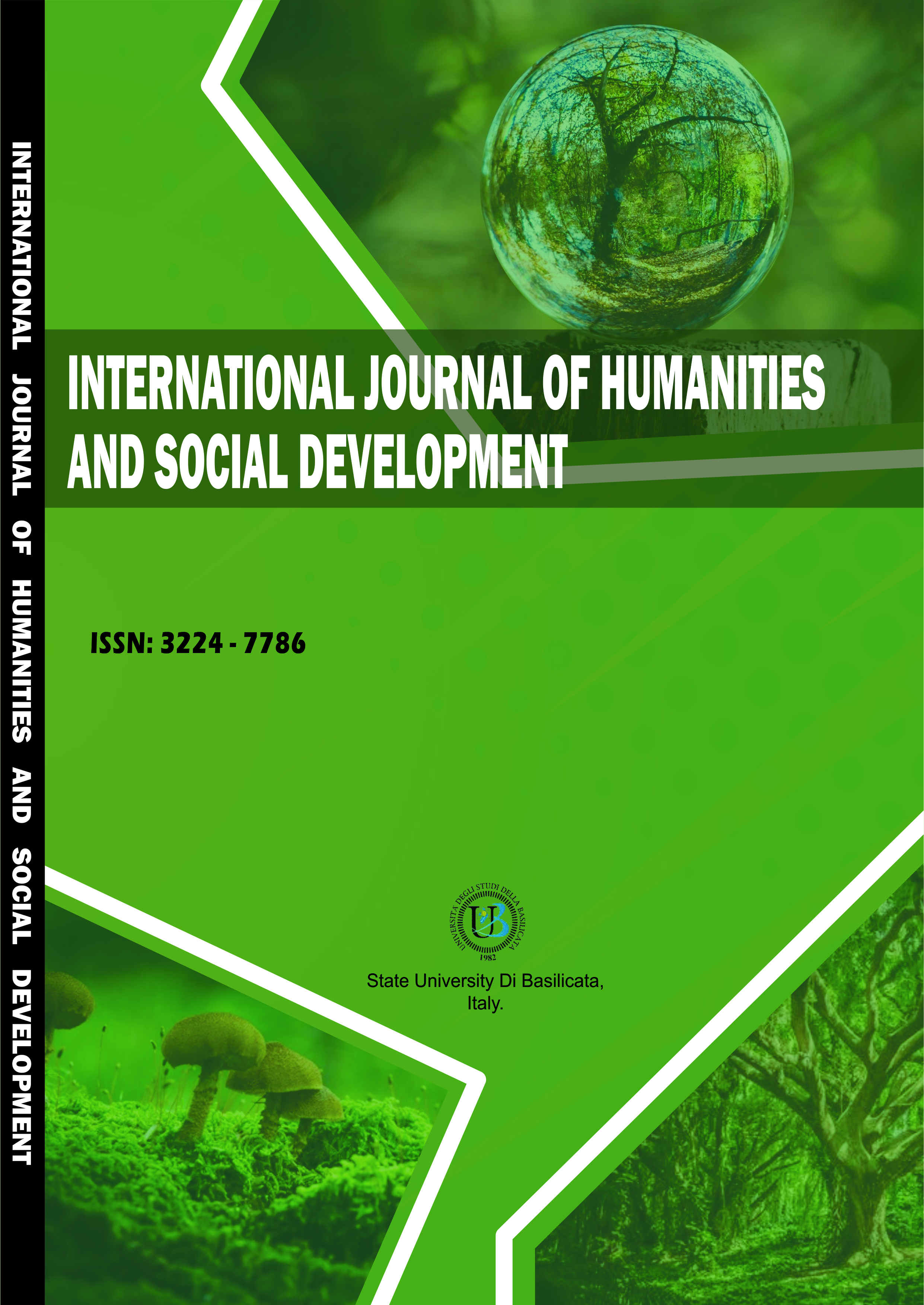INTERNATIONAL JOURNAL OF HUMANITIES AND SOCIAL DEVELOPMENT (IJHSD)
ANALYSING THE USE OF STYLE IN OLA ROTIMI'S OUR HUSBAND HAS GONE MAD AGAIN
E-ISSN: 2133 - 3762
P-ISSN: 3224 - 7786
DOI: https://iigdpublishers.com/article/603
This study presents a stylistic analysis of Ola Rotimi‘s Our Husband Has Gone Mad Again, a satirical play that explores political ambition, societal hypocrisy, and gender roles in post-colonial Nigeria. Through a detailed examination of language, dialogue, and characterisation, the analysis underscores how Rotimi employs humour, irony, and linguistic hybridity to critique socio-political realities. Rotimi‘s language is a hallmark of his dramatic style, blending Standard English with Nigerian Pidgin and indigenous expressions to create authentic, relatable dialogue. This linguistic hybridity mirrors the cultural and political tensions in Nigeria, reflecting a society grappling with modernity and tradition. The study focuses on how the interplay of linguistic registers enhances the comedic tone while foregrounding the thematic depth of the play. The characterisation of Lejoka-Brown, the protagonist, is a focal point of this analysis. His bombastic speeches, rife with malapropisms and exaggerated rhetoric, highlight the absurdities of his political aspirations and outdated views on gender. These stylistic choices not only generate humour but also serve as a critique of the unprepared and self-serving political elite in Nigeria‘s early post-independence period. Additionally, the play‘s dialogue is analysed for its satirical undertones, showcasing how Rotimi uses verbal irony and sharp wit to expose societal contradictions, particularly regarding the roles and expectations of women. The interactions between characters reveal the struggle for agency within a patriarchal system, highlighting the tension between traditional polygamous practices and emerging feminist ideals. This study concludes that Rotimi‘s stylistic techniques— rooted in linguistic innovation, satirical humour, and sharp characterisation—are central to the play‘s enduring relevance. By merging form and content, Our Husband Has Gone Mad Again offers a compelling critique of post-colonial governance and social dynamics, solidifying Rotimi‘s place as a master of African dramatic literature.
STEPHEN UCHENNA ENEH & OBIORA ANTHONY EKE PhD
Akudo, O. U. (2021). Socio-Historical Realities and The De/Construction of The Algerian Identity in Selected Novels of Leila Sebbar. https://pgsds.ictp.it/xmlui/bitstream/handle/123456789/1374/akudo.pdf?sequence=1&isAllow ed=y.
Baden, C., Pipal, C., Schoonvelde, M., & van der Velden, M. A. G. (2022). Three Gaps in Computational Text Analysis Methods for Social Sciences: A research agenda. Communication Methods and Measures. https://www.tandfonline.com/doi/pdf/10.1080/19312458.2021.2015574, 16(1), 1-18.
Bekers, E., Burnett, E. J., & Cousins, H. (2022). The Interrelatedness of Form and Content in Contemporary Black British Women's Writing: Interviews with Victoria Adukwei Bulley, Laura Fish, Lou Prendergast, and …. Tulsa Studies in Women's Literature. https://muse.jhu.edu/pub/80/article/869981/summary.
Figueroa, D. G., Hindmarsh, M., Lizarraga, J., & Urrestilla, J. (2020). Irreducible Background of Gravitational Waves from a Cosmic Defect Network: Update and Comparison of Numerical Techniques. Physical Review D. https://arxiv.org/pdf/2007.03337.
Fisher, C. M., Peter, K. T., Newton, S. R., Schaub, A. J., & Sobus, J. R. (2022). Approaches for Assessing Performance of High-Resolution Mass Spectrometry–Based Non-Targeted Analysis Methods. Analytical and bioanalytical chemistry, 414(22), 6455-6471. https://link.springer.com/content/pdf/10.1007/s00216-022-04203-3.pdf.
